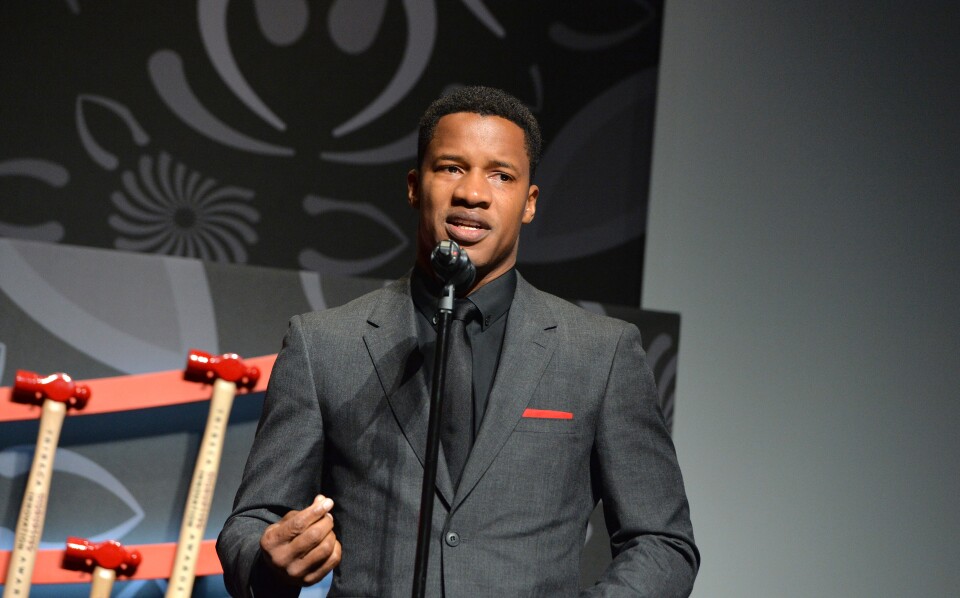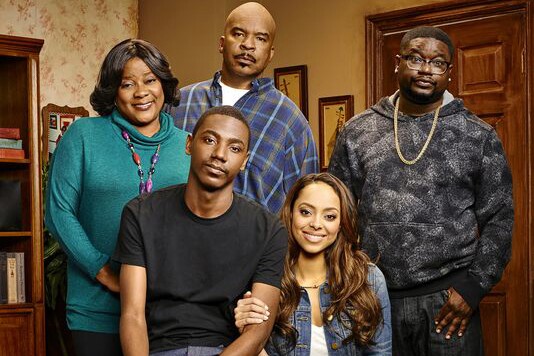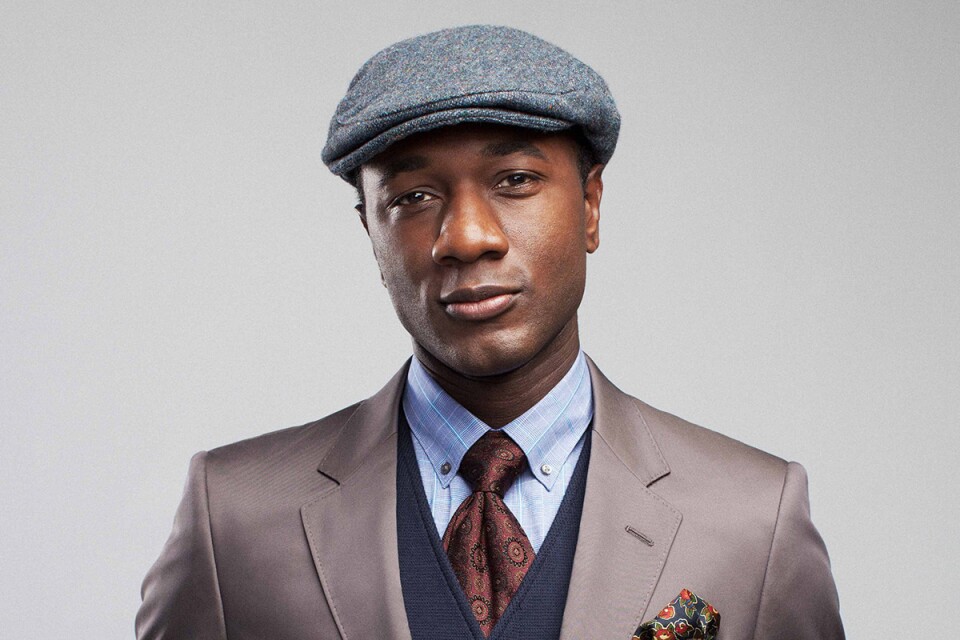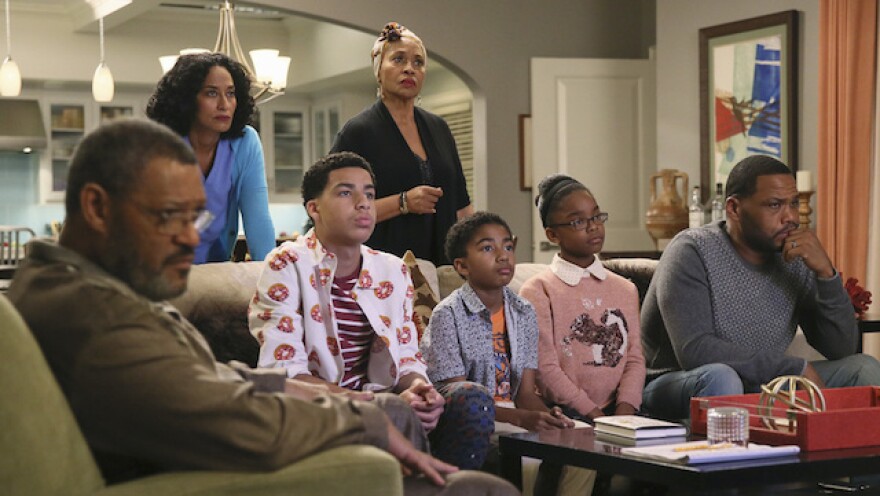In the wake of the past week's violence around the country, we hear from artists who see it as their duty to also be activists. Among the voices: poet Claudia Rankine, comedian Jerrod Carmichael and singer Aloe Blacc.
Art & activism: Nate Parker, Jerrod Carmichael, Claudia Rankine, Aloe Blacc
In light of the violent events around the country this past week, we are revisiting interviews with prominent artists talking about the social relevance of their work -- and, more importantly, their responsibility as creators.
CLAUDIA RANKINE

CLAUDIA RANKINE is a writer and poet. Her book of poetry, “Citizen: An American Lyric,” is a meditation on race and racism in the country. “Citizen” also was adapted into a play; it was produced last year at the Fountain Theater in Los Angeles. Rankine wrote the book around the time that Trayvon Martin was killed by George Zimmerman. The cover of her book of poetry is the image of a single dark green hoodie against a white background. The artwork is called “In The Hood,” by the artist David Hammons. It is currently part of an exhibit at The Underground Museum in Los Angeles.
On the image of the hoodie:
I love the fact that it is something, it is a garment that we all own. We all have it. And it only becomes the thing when it is projected on. That it's a thing to be feared whether it's the executioner or the supposed criminal, only in those moments that you bring to it. The rest of the time it's what you wear to Starbucks.
On “Citizen: An American Lyric":
I think the book is about intimacy and it's about the kind of intimacy that shuts down because of the unsaid. And often people, when they approach these racist moments, they don't know what the next thing to say is, or one can't engage it because it feels like it will be too big, it will be too volatile, it will be a place where you can't come back from. I'm hoping that the book and the play allows people to recognize these moments as moments that we all own. That they're not moments of private shame, they're moments of an American history. We can enter them, discuss them and move forward. As long as we keep acting like they're not happening, they'll keep happening.
NATE PARKER

NATE PARKER is an actor and filmmaker whose first narrative feature as a director is called “The Birth of a Nation.” It is very much intended to be a response to the 1915 racist DW Griffith film with the same name. Parker’s movie is about Nat Turner who was a slave, a preacher and, in a way, one of the nation’s very first African American civil rights activists. Turner led a violent slave revolt that preceded the Civil War. “The Birth of a Nation,” is scheduled for an October 7th release. The Frame spoke with him at the Sundance Film Festival earlier this year where it premiered.
Parker identifies himself as an activist first and a filmmaker second. He told The Frame, "Nat Turner used an axe. My axe is a camera, and sound equipment, and an incredible crew."
On what he hopes "The Birth of a Nation" can do as a piece of political speech:
I think this film can promote and facilitate healing in a country that has wounds that were afflicted during the legacy of slavery and that still affect us today.
I think this film is an opportunity for us to look at this dark past, see not only the implications of the time, but the themes and parallels of where we are right now...So my hope is that this film creates change agents, that people will see it and — if they are moved — that they will know and be encouraged to step into that place of responsibility. That it will create activists of everyone. Because the reality is, there's racial tension that's affecting us all. And there's no one that will deny that. Which means that we all want to heal, that we all want to confront this issue, collectively.
I didn't make this film for black people to only stand up and say, I have something to do, and I have a responsibility. I want all people to say that. I want people to say, What happened during this time was not only wrong. But it created systems that affect us today. And I have a responsibility to deal with those systems when they exist in my environment.
On what modern movie goers can learn from Nat Turner's story:
If someone's watching this film, I would hope and challenge them to ask themselves: In 2016, are there things happening that I know for a fact are wrong, that go against the ideology that I support as a patriot of this country? Whether it be the prison industrial complex that holds people in captivity, that has great injustices that are happening against people. Or whether it be racial inequality, or gender ID inequality, sexual inequality. Where are those injustices and iniquities that raise their head and how can I be effective in stomping those things out?
JERROD CARMICHAEL

JERROD CARMICHAEL is the co-creator and star of the NBC comedy “The Carmichael Show.” The program has taken on race and police brutality, among other topics. In one of the first episodes of the series, which debuted last year, Carmichael and his TV-family discussed the importance of protesting after an unarmed black man was shot by the police.
The Frame spoke with Jerrod Carmichael earlier this year on the set of his series.
On the value of challenging others and of being challenged:
Everything good in my life has come from me questioning everything, challenging everything, from me feeling challenged. Everything, everything. The television shows I watched challenged me. The music I listen to, it gives me something to figure out, even if it's a jazz instrumental, the trombone needs to be doing something that I can't just immediately understand. It gives me something to search for, a reason to use my brain. So challenges within the writers' room, the show, with the content is the most important thing that we could possibly do.
On crossing the comedy line when addressing serious issues:
I'm always running from comedy. How is that for a comedian? A comedian who ain't got no jokes! I'm running towards truth and I'm running towards -- in the show -- I'm running towards intention and the clash. Comedy is the escape from it, but only after you get yourself into a little trouble.
ALOE BLACC

ALOE BLACC is a singer-songwriter and artivist who is a co-founder of the collective Artivist Entertainment.
On his origin as an artivist:
I think, part of my education in becoming an artivist was my engagement in hip-hop music. There used to be a phrase — people would say that hip hop is the CNN of the streets. So reporting on what's happening in neighborhoods that are underreported on in the news media. I used that method, that style of hip-hop, as my way of speaking truth to power or engaging topics about social ills and political misconduct. I think that education, that practice, I brought that into my life as a vocalist and as a singer.
'Black-ish' creator Kenya Barris: The purpose of art is to 'start a conversation'
The violent events of the past week have roiled the country and artists are already responding. Jay-Z has released a song called “Spiritual.” And the singer Miguel has posted a new song called “How Many?” Both songs are indictments of police brutality.
But the killing of five police officers in Dallas calls for a different type of reflection about the role of artists in society. Writer and producer Kenya Barris created the ABC sitcom, “Black-ish.” The show may be a family comedy but it has taken on a number of serious topics, such as use of the "N" word and police violence toward African-Americans.
https://www.youtube.com/watch?v=rA9QBZr8WEg
We reached Barris at his production office where he is working on the next season of his series. He spoke with The Frame's John Horn about using his sitcom to address serious matters.
Interview Highlights:
How have you processed the past week: as a parent, as a citizen, or as a writer and producer?
I just think as a member of humanity you have to react and say, This is a loss of life. It's a continual sort of story that seems to be a theme of what it means to be a certain segment of this population.
Does that mean that you start to think of yourself as a storyteller in relation to these events and how you might process them and share them with a broader audience?
For me, as a storyteller, your stories just come from your own personal experiences. Of course, this is not something that I'm thinking about telling a story about, it's just something that I'm sure as I begin to start talking about things in my life, this will have an effect on it, as it always has.
What are some of the conversations you've been having with people over the past week about what's been happening?
Just outrage. Just sadness. Just confusion. I think this, coupled with the really interesting political campaign that we're seeing happening right now, the time period that we're living in, the fact that I just had another child — it's just a really confusing time. It causes a lot of questions as to what is the right way to handle things, or what's the right thing to say and how I'm supposed to feel.
As a parent, you're raising kids in a world that's incredibly fractured. How do you hope that they can understand and maybe help change the world? Do you think that as an artist you can help guide them through that process?
I think as an artist, I want to tell stories that may help inform what the world is feeling. I think as a father, I feel a great amount of turmoil, not really understanding what is up and what is down. There is a level of intersectionality that I come to between being a father and being a black man. My kids are going to come to that same point between being members of society and being black children. I feel like I don't necessarily know for them what comes first. If you use this week for example, I feel like them being black children comes first over being part of society because we're not looked at as the same as the rest of society so I have to lead with that.
In the other sense, I saw some police officers were killed last night and that's loss of life. They're part of humanity and part of our world and my heart goes out to them and their families. I want to mourn for them and I do mourn for them, but it's such a confusing time and I'm trying to keep an open line of dialogue. That's the same thing I'm trying to do in terms of [being] a writer. I'm trying to not land in one particular place, but open up a conversation that hopefully leads to some sort of change.
An episode of yours from last season, "Hope," is loosely about the police's violent treatment of a young man, but it's really about how the Johnson family debates race, injustice and speaking truth to power. In the scene the family's watching the news about whether or not the police are going to be held accountable and the mom is explaining what's going on to the children. What were you trying to say with this episode?
There's just a lot that goes on in this world. The idea of what you talk to your kids about and how you speak to them — you don't want to scorch the earth for them based off of travels that you've had, but at the same time you don't want to not give them a sense of the world around them because they have to have their eyes open. That's sort of the challenge now as a parent with media outlets having so many different sources for them to speak.
The Internet and social media are very challenging. That particular episode was talking about exactly what we're saying right now. We see these things happen ... my daughter is literally perplexed with not being able to really express her feelings because she's scared. She's scared of what's going on around her. As a father, I want to talk to her and be open-minded, but I'm angry as well, so it's hard for me to sometimes keep that mindset as open as it should be.
What must be hard for you is, you're angry and you're trying to deal with incredibly difficult issues, but you're working in a medium that is mostly comedic. How do you manage to do all of those things at the same time?
I have a really eclectic staff of talented writers and we are friends and have really open conversations about what we're feeling without judgement. I think that leads to bigger and more varied dialogue that allows us to open those doorways and open those conversations in a way that doesn't lead us down one particular path.
When do you know that you're getting the right tone of humor and seriousness?
I think when we hear it out loud at the table read. Sometimes you feel it when you read it, but I think particularly when you hear it. Our actors are so gifted that they give us a really good sense when those words are read for the first time whether or not it's working or not.
The episode we've been talking about ends with a John Legend song, "If You're Out There." There's a montage of protests about gay rights, women's rights and the Black Lives Matter movement. Are you always trying to think about how the specific can be more universal?
I think the universality of this episode is in the specificity of it. When you try to speak universally you end up probably reaching less people. I think for us we don't speak to everyone, we speak to what our family on this show in particular would want. Hopefully if we do it right, that reaches the people that we wanted to reach in the way we wanted to reach them.
Broadly speaking, what kind of role do you see for yourself in the show? Should artists, in general, be making sure that people who watch entertainment or popular culture come away with a better or clearer understanding of their role in the world?
The purpose for me of art — of any type of art, whether it's media art, television or music — is to start a conversation and to evoke some sort of emotion. If you are doing that and you are doing it well, then one of those things will happen. It's not the obligation, but I think it should be the goal of art to start a conversation or evoke an emotion.




